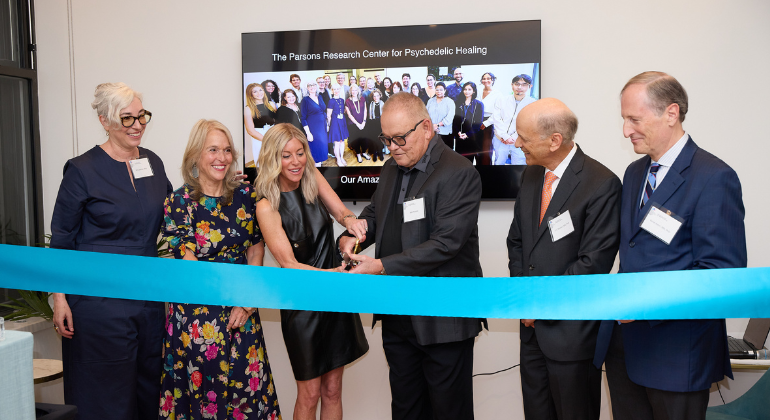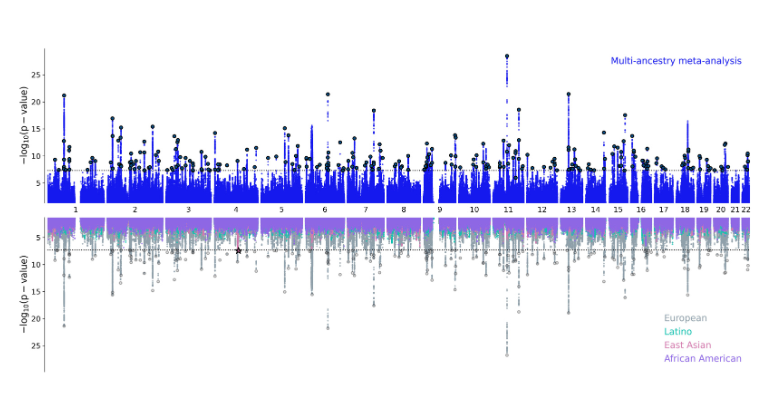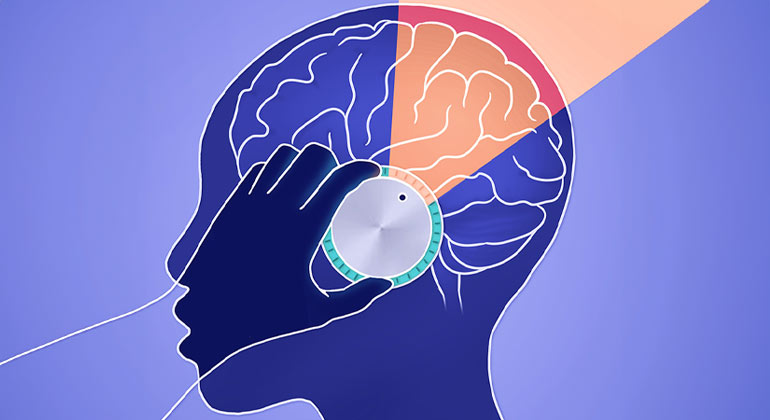Researchers Find Novel Drug Target for the Treatment of Post-Traumatic Stress Disorder (PTSD)
Alexander Neumeister, MD, Associate Professor of Psychiatry, has identified a promising therapeutic target in the brain that could lead to the treatment of PTSD.
A team of researchers at Mount Sinai School of Medicine has identified a promising therapeutic target in the brain that could lead to the treatment of post-traumatic stress disorder (PTSD). This is the first evidence of a potential drug target for the condition. The data were published in the September issue of the Archives of General Psychiatry, one of the JAMA/Archives journals.
Alexander Neumeister, MD, Associate Professor of Psychiatry at Mount Sinai School of Medicine, and colleagues collaborated with the Yale Positron Emission Tomography (PET) Center to evaluate 96 patients: 49 with PTSD; 20 who were exposed to trauma but did not have PTSD; and 27 healthy adults. The patients were injected with a radiotracer, which is a substance that helps provide a clear picture of serotonin 1B levels. Serotonin 1B is a receptor involved in the psychological processes of the brain. Then they underwent PET scans that produced advanced biological images of their brains. The patients were injected with a radiotracer, during the PET scan.
The researchers found that serotonin 1B levels were substantially lower in the group of patients diagnosed with PTSD than in patients who did not have PTSD, and slightly lower in the patients who had been exposed to trauma but did not have PTSD.
"Our research provides the first evidence of a novel mechanism in the brain, and sets the stage for the development of therapies that target serotonin 1B receptors, offering the potential to minimize the disabling effects of PTSD," said Dr. Neumeister. "Currently, the only medical treatment options for the nearly eight million American adults with PTSD are anti-depressants and anti-anxiety medications, which show little benefit in improving the mental health of these patients."
When Dr. Neumeister and his team evaluated predictors to explain the reduction in serotonin 1B levels in PTSD, they examined each patients’ age, age at first traumatic experience, number of traumatic experiences, sex, body mass index and co-morbid depression, which is found frequently in PTSD. They found that it was the age at first trauma that determined the reduction in 1B receptors and the severity of PTSD, establishing that trauma at a young age causes long-lasting neurobiological and psychological effects in survivors with PTSD.
"The patients in our study included victims of childhood abuse, domestic violence, and military veterans," said Dr. Neumeister. "For these patients and the millions like them, treatment with currently available medications or psychotherapy is often ineffective. Unfortunately, people with PTSD often have additional psychiatric illnesses such as major depression or may develop substance use problems as an avenue for relieving their symptoms. Our research opens new doors in understanding PTSD and developing treatments for it, and may provide hope for these severely ill patients to be well."
The study was supported with funding from the National Institute of Mental Health, The Brain & Behavior Research Foundation (formerly NARSAD), and the VA National Center for PTSD.
About The Mount Sinai Medical Center
The Mount Sinai Medical Center encompasses both The Mount Sinai Hospital and Mount Sinai School of Medicine. Established in 1968, Mount Sinai School of Medicine is one of the leading medical schools in the United States. The Medical School is noted for innovation in education, biomedical research, clinical care delivery, and local and global community service. It has more than 3,400 faculty in 32 departments and 14 research institutes, and ranks among the top 20 medical schools both in National Institutes of Health (NIH) funding and by U.S. News & World Report.
The Mount Sinai Hospital, founded in 1852, is a 1,171-bed tertiary- and quaternary-care teaching facility and one of the nation’s oldest, largest and most-respected voluntary hospitals. In 2011, U.S. News & World Report ranked The Mount Sinai Hospital 16th on its elite Honor Roll of the nation’s top hospitals based on reputation, safety, and other patient-care factors. Of the top 20 hospitals in the United States, Mount Sinai is one of 12 integrated academic medical centers whose medical school ranks among the top 20 in NIH funding and U.S. News & World Report and whose hospital is on the U.S. News & World Report Honor Roll. Nearly 60,000 people were treated at Mount Sinai as inpatients last year, and approximately 560,000 outpatient visits took place.
For more information, visit http://www.mountsinai.org/.
Find Mount Sinai on:
Facebook: http://www.facebook.com/mountsinainyc
Twitter @mountsinainyc
YouTube: http://www.youtube.com/mountsinainy
About the Mount Sinai Health System
Mount Sinai Health System is one of the largest academic medical systems in the New York metro area, with 48,000 employees working across seven hospitals, more than 400 outpatient practices, more than 600 research and clinical labs, a school of nursing, and a leading school of medicine and graduate education. Mount Sinai advances health for all people, everywhere, by taking on the most complex health care challenges of our time—discovering and applying new scientific learning and knowledge; developing safer, more effective treatments; educating the next generation of medical leaders and innovators; and supporting local communities by delivering high-quality care to all who need it.
Through the integration of its hospitals, labs, and schools, Mount Sinai offers comprehensive health care solutions from birth through geriatrics, leveraging innovative approaches such as artificial intelligence and informatics while keeping patients’ medical and emotional needs at the center of all treatment. The Health System includes approximately 9,000 primary and specialty care physicians and 11 free-standing joint-venture centers throughout the five boroughs of New York City, Westchester, Long Island, and Florida. Hospitals within the System are consistently ranked by Newsweek’s® “The World’s Best Smart Hospitals, Best in State Hospitals, World Best Hospitals and Best Specialty Hospitals” and by U.S. News & World Report's® “Best Hospitals” and “Best Children’s Hospitals.” The Mount Sinai Hospital is on the U.S. News & World Report® “Best Hospitals” Honor Roll for 2024-2025.
For more information, visit https://www.mountsinai.org or find Mount Sinai on Facebook, Instagram, LinkedIn, X, and YouTube.

Mount Sinai Expands Psychedelic Research Center With New Facility in Upper Manhattan
Sep 19, 2024 View All Press Releases
Father’s Psychiatric Diagnosis Increases Risk of Preterm Birth, Study Reports
Jul 20, 2023 View All Press Releases







